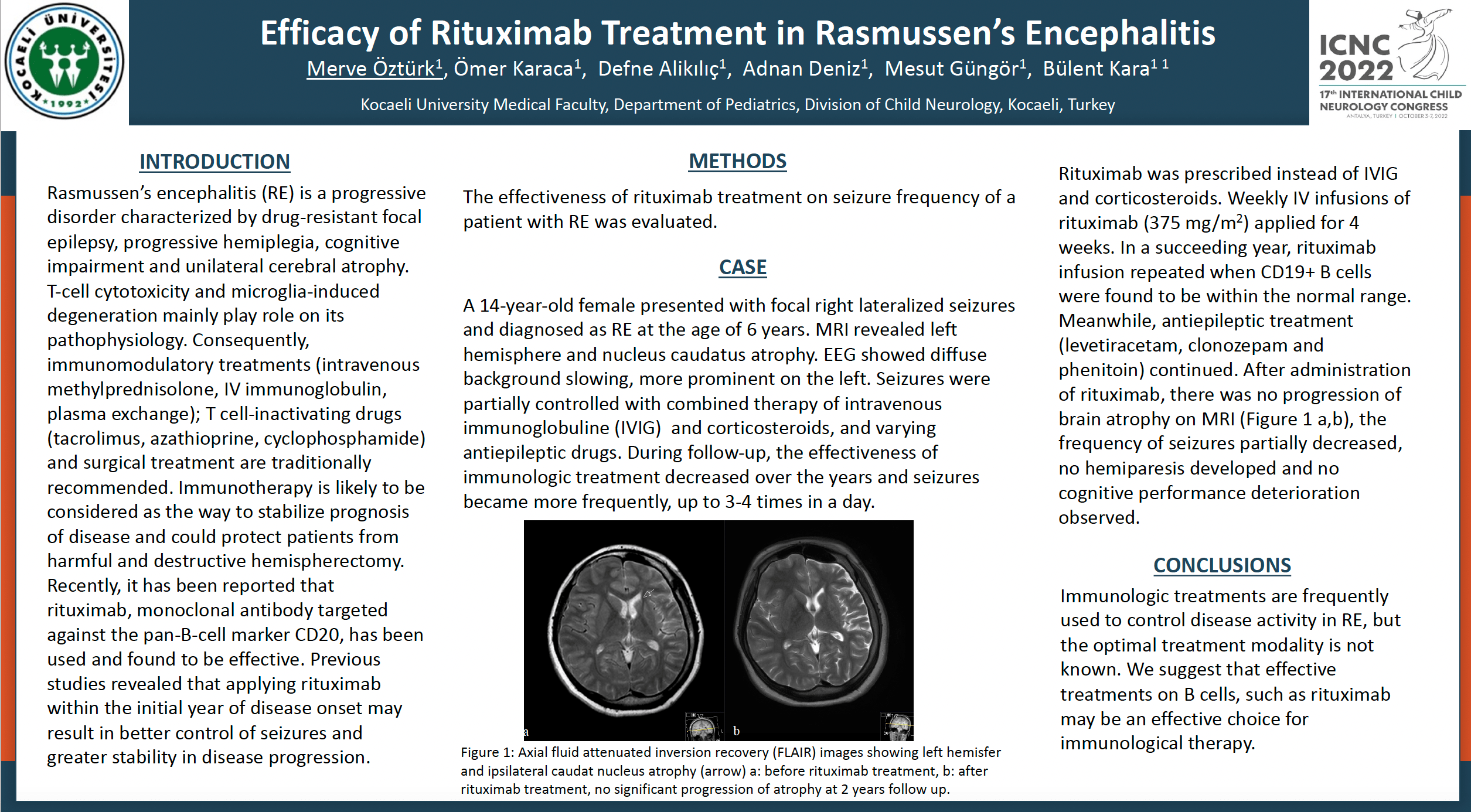Efficacy of Rituximab Treatment in Rasmussen’s Encephalitis
Merve Öztürk, Ömer Karaca, Defne Alikılıç, Adnan Deniz, Mesut Güngör, Bülent Kara
Objectives: Rasmussen’s encephalitis (RE) is a progressive disease characterized by drug-resistant focal epilepsy, progressive hemiplegia, cognitive impairment and unilateral cerebral atrophy. T-cell cytotoxicity and microglia-induced degeneration mainly play role on its pathophysiology. Consequently, immunomodulatory treatments that are effective on T cells and surgical treatment are traditionally recommended. Recently, it has been reported that rituximab, monoclonal antibody targeted against the pan-B-cell marker CD20, has been used and found to be effective.
Methods: The efficacy of rituximab treatment on seizure frequency of a patient with RE was evaluated.
Results: A 14-year-old female presented with focal seizures on the right side of body and diagnosed as RE at the ages of 6 years. Brain MRI revealed left hemisphere atrophy, and atrophy of nucleus caudatus. EEG showed diffuse slowing of background activity. Seizures were partially controlled with combined therapy of intravenous immunoglobuline and corticosteroids, and varying antiepileptic drugs. At follow-up, the efficacy of immunologic therapy decreased year by year and frequency of seizures increased, up to 3-4 times in a day. Rituximab was ordered instead of IVIG and corticosteroids. After administration of rituximab the frequency of seizures significantly decreased and cognitive performance improved.
Conclusion: Immunologic treatments are frequently used to control disease activity in RE, but the optimal treatment modality is not known. We propose that therapies against B cells, such as rituximab may be an effective choice for immunological therapy.
Keywords: Rasmussen encephalitis, rituximab, seizure
Merve Öztürk
Kocaeli University
Turkey
Ömer Karaca
Kocaeli University
Turkey
Defne Alikılıç
Kocaeli University
Turkey
Adnan Deniz
Kocaeli University
Turkey
Mesut Güngör
Kocaeli University
Turkey
Bülent Kara
Kocaeli University
Turkey

Merve Öztürk
Kocaeli University Turkey
Kocaeli University Turkey